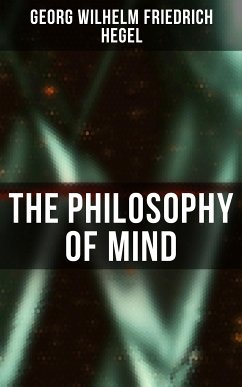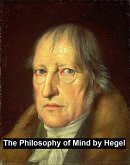Georg Wilhelm Friedrich Hegel's 'The Philosophy of Mind' is a profound exploration of the human mind and its relationship to reality. Written in Hegel's unique dialectical style, the book delves into the nature of consciousness, self-awareness, and the interconnectedness of individual thought with universal spirit. Drawing on a wide range of philosophical traditions, including Idealism and German Romanticism, Hegel presents a comprehensive analysis of the mind as the mediator between the physical world and the realm of ideas. With its intricate arguments and systematic approach, 'The Philosophy of Mind' is a challenging but rewarding read for those interested in the complexities of human cognition. Georg Wilhelm Friedrich Hegel, a seminal figure in 19th-century philosophy, was deeply influenced by the intellectual currents of his time. His work reflects his engagement with the philosophical dilemmas of his era, such as the tension between individual subjectivity and social reality. Hegel's commitment to dialectical reasoning and historical consciousness is evident throughout 'The Philosophy of Mind', showcasing his belief in the importance of understanding the development of human thought over time. I highly recommend 'The Philosophy of Mind' to readers seeking a rigorous examination of consciousness and the mind-body relationship. Hegel's insights continue to be relevant today, offering valuable perspectives on the nature of knowledge, perception, and human experience.
Dieser Download kann aus rechtlichen Gründen nur mit Rechnungsadresse in A, B, BG, CY, CZ, D, DK, EW, E, FIN, F, GR, H, IRL, I, LT, L, LR, M, NL, PL, P, R, S, SLO, SK ausgeliefert werden.









